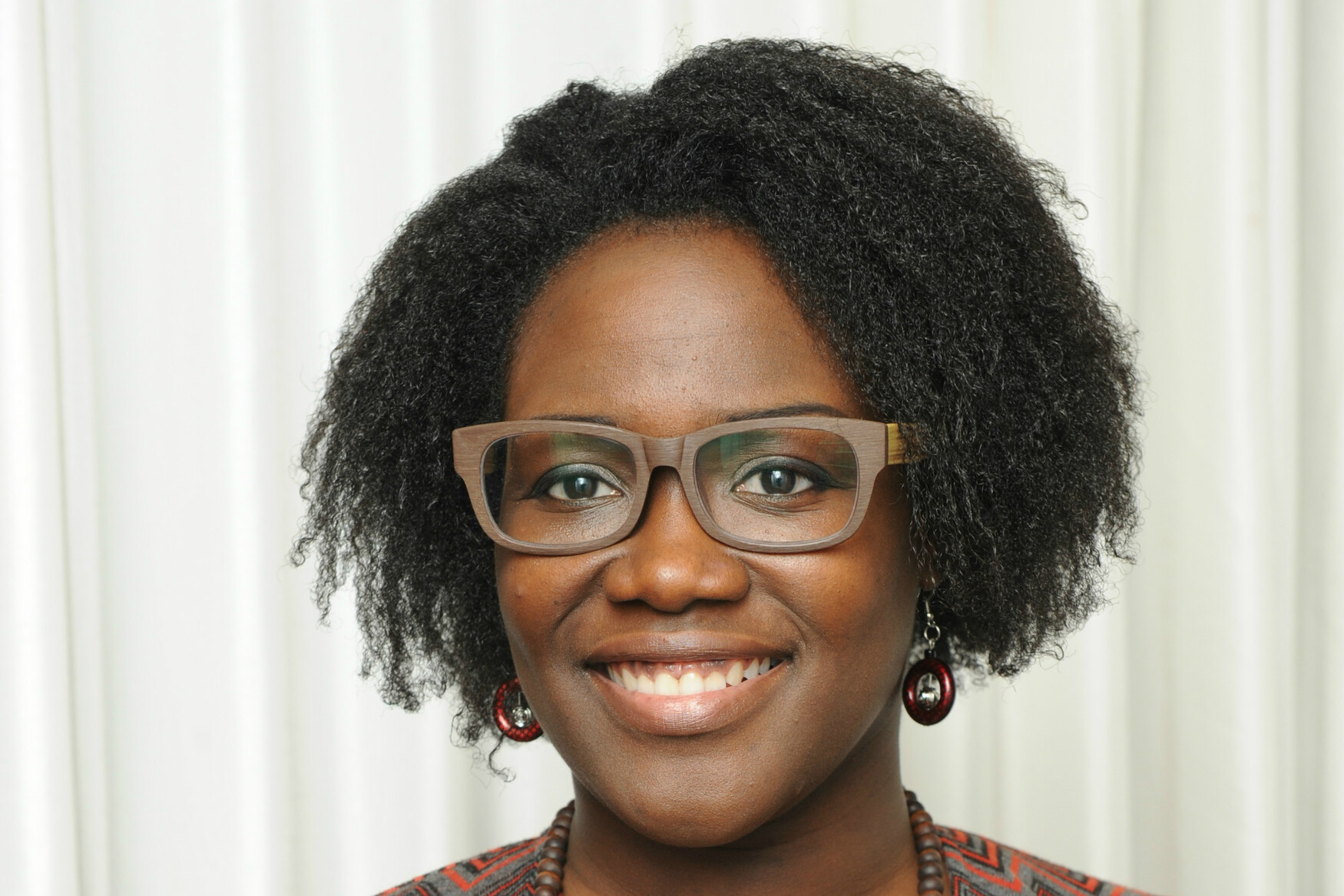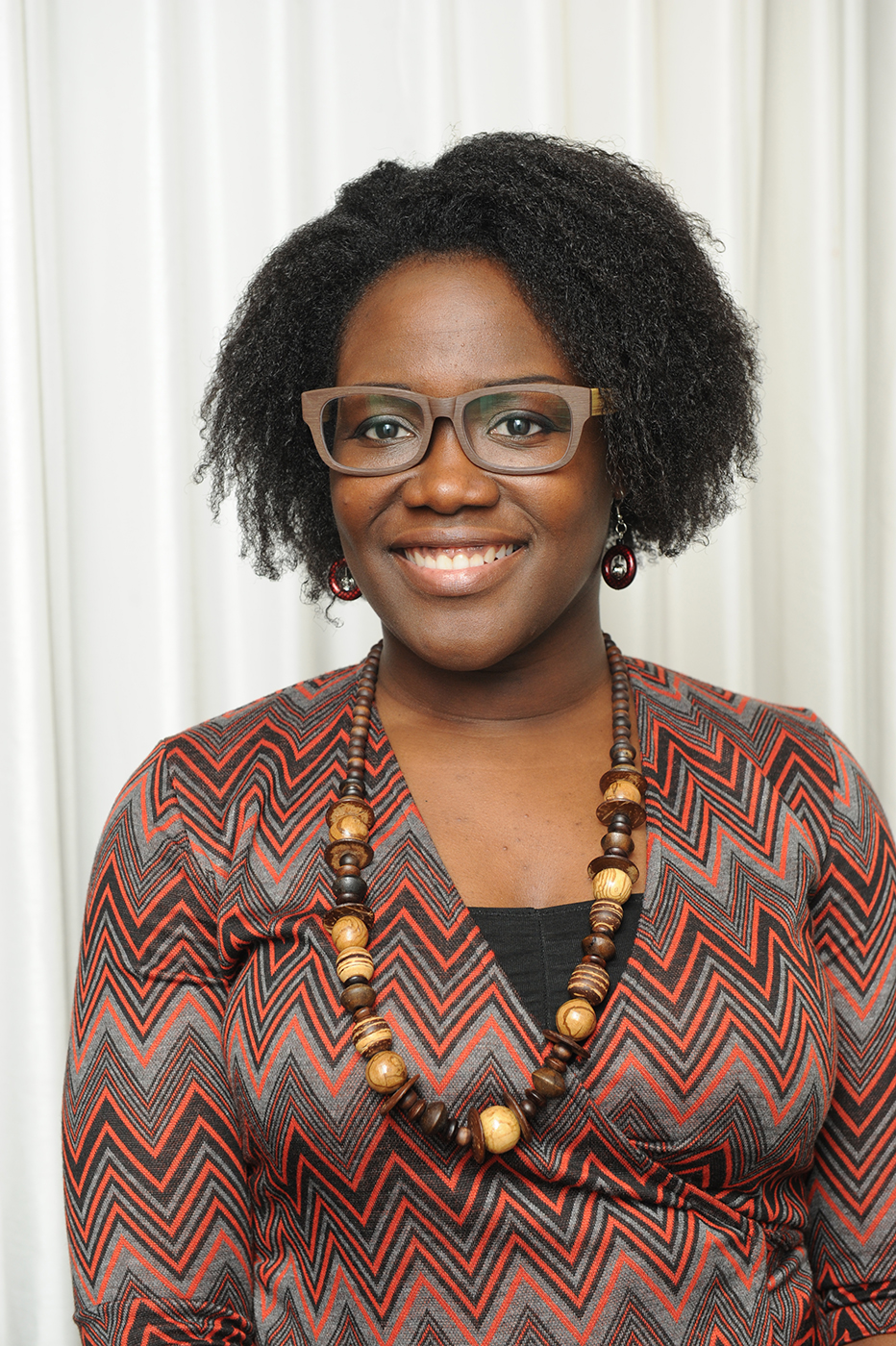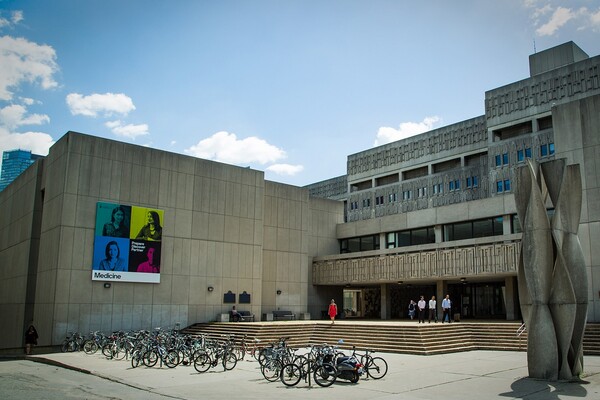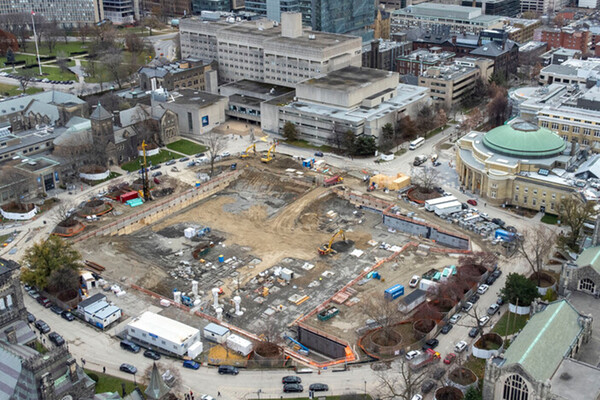Faces of U of T Medicine: Onye Nnorom

Liam Mitchell
 Dr. Onye Nnorom’s passion for public health arose from her own experiences. Born to Nigerian and Trinidadian parents, she is particularly interested in immigrant health and Black community health and wellness. A Lecturer at the Dalla Lana School of Public Health and the Department of Family and Community Medicine, Nnorom is Associate Program Director of the Residency Program in Public Health and Preventive Medicine. Nnorom spoke to U of T Medicine about her work in public health and her efforts to advance Black health in Ontario.
Dr. Onye Nnorom’s passion for public health arose from her own experiences. Born to Nigerian and Trinidadian parents, she is particularly interested in immigrant health and Black community health and wellness. A Lecturer at the Dalla Lana School of Public Health and the Department of Family and Community Medicine, Nnorom is Associate Program Director of the Residency Program in Public Health and Preventive Medicine. Nnorom spoke to U of T Medicine about her work in public health and her efforts to advance Black health in Ontario.
What lead you to focus on public health?
Really my whole upbringing has prepared me for it. Growing up in Montreal, the child of two immigrant parents, I saw how they volunteered in the community to help other newcomers access services, find jobs and rally together. I would also volunteer, be it with the Nigerian community or Caribbean community, to help them access resources. I worked for a Black community newspaper as a high school student and later as an undergraduate.
I found that a lot of my passions and time were dealing with social issues, including economic inequality and racism. As a medical student at McGill, these topics were given a new term: the social determinants of health. These are social issues that can impact your health. So when I discovered there was an area of medicine where I could focus on these issues, I became determined to apply into the specialty of public health.
How are you promoting public health?
To begin with, I’m the Associate Program Director of the Residency Program in Public Health and Preventive Medicine at the University of Toronto. Basically the training consists of a two-year family medicine residency, followed by one year in which people get a Master’s degree in public health, and two years training in public health, often with government organizations. The purpose is to understand and improve the health of populations. In the majority of cases, public health medical residents intend to work in government organizations to address public health at large levels, like the health of Toronto, or Ontario or nationally. Some of us, including myself, want to focus our work on specific marginalized populations. In my case, it’s a focus on Black health. For others, it might be Aboriginal health or the health of people who are living with addictions.
You’re a family doctor at TAIBU Community Health Centre, where you also work on developing health prevention programs. How does this further your commitment to improving Black health?
TAIBU serves the Black community across Toronto and the highly diverse immigrant population in Malvern. So part of my role is seeing patients as a family physician, but I am also involved in developing preventative programs related to chronic disease. For example, when I arrived our breast cancer screening rates were very low. They were around 25% for eligible patients. Based on my public health training and my understanding of community issues, we were able to develop a strategy. We conducted focus groups around breast cancer screening, we looked at the literature to identify barriers related to immigrant and Black populations, and we came up with an outreach strategy. We addressed common barriers and fears, and long story short, in three-and-a-half years we raised the screening rates to 68%.
You’re also active in the Black Physicians Association of Ontario, where you serve as Vice President. What are your priorities?
One of our first goals is to increase the number of Black physicians in Ontario, and perhaps nation-wide. That is because within the healthcare system, you need to have professionals who reflect the populations they serve. And what we know is that Blacks are underrepresented in medicine. If you look at the black population in Ontario – certainly in Toronto – you see that blacks are not represented at the same rates in healthcare professions. So we want to try to increase the number of Black physicians through mentorship, outreach and activities like that so that Black, young, talented undergraduate student with the potential to become a physician, but who is not sure s(he) can do it, can look to us as examples and actually reach that goal.
We also want to be a resource on health issues that disproportionately affect the Black, or African and Caribbean communities. We have an annual event where we provide training to other physicians and healthcare providers on Black health. But we are interested in being more involved in public education, but also in medical education at places like U of T, where we can play a role too.
What are the challenges that can impede Black health?
For me, it’s a challenge that in Canada we don’t systematically collect race or ethnicity information in healthcare. It makes it hard to identify where the disparities are so that we can go in and address them. Certainly where the information is collected, Black Canadians have higher rates of hypertension and diabetes. But there are a lot of other areas where I worry we might see disparities like we see in the US or the UK, but because we don’t have the data, we don’t know with certainty.
There are great models that exist. For example, in Toronto through the Toronto Central LHIN, that data is collected by hospitals. We need to initiate more of these discussions, which are difficult, but they are beginning. There is some excellent work being done by different groups like Toronto Health Equity, who have developed the model about asking about race, sexual orientation, income and education. They’ve helped develop the questions. And I like how they’ve approached it, because they say “we ask, because we care.” That’s a great model for institutions across Ontario to follow.
Faces of U of T Medicine introduces you to some of the interesting men and women studying in the Faculty of Medicine. From advising political leaders to providing care to Toronto’s most vulnerable populations, our students are making an impact on communities at home and around the world. Do you have an interesting story to share? Send us an email at medicine.communications@utoronto.ca.
News


